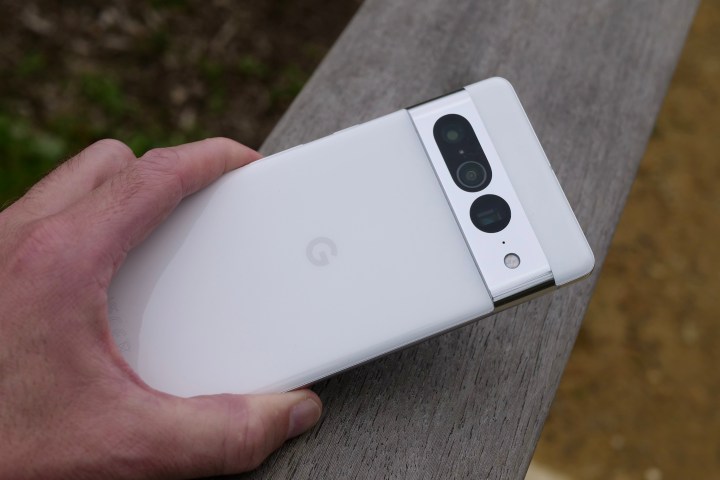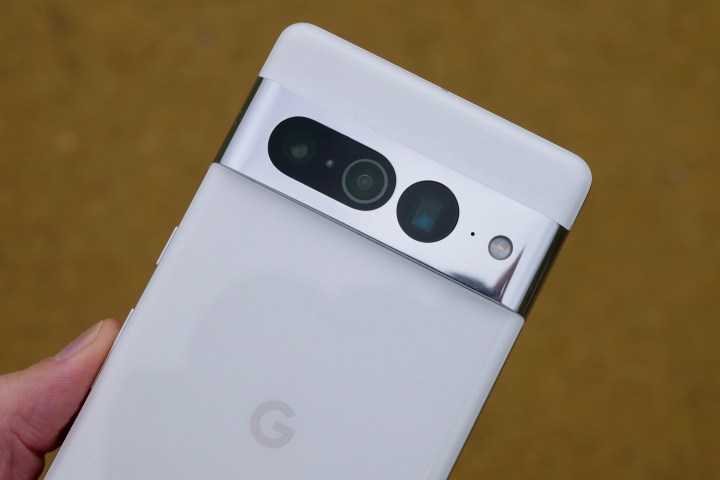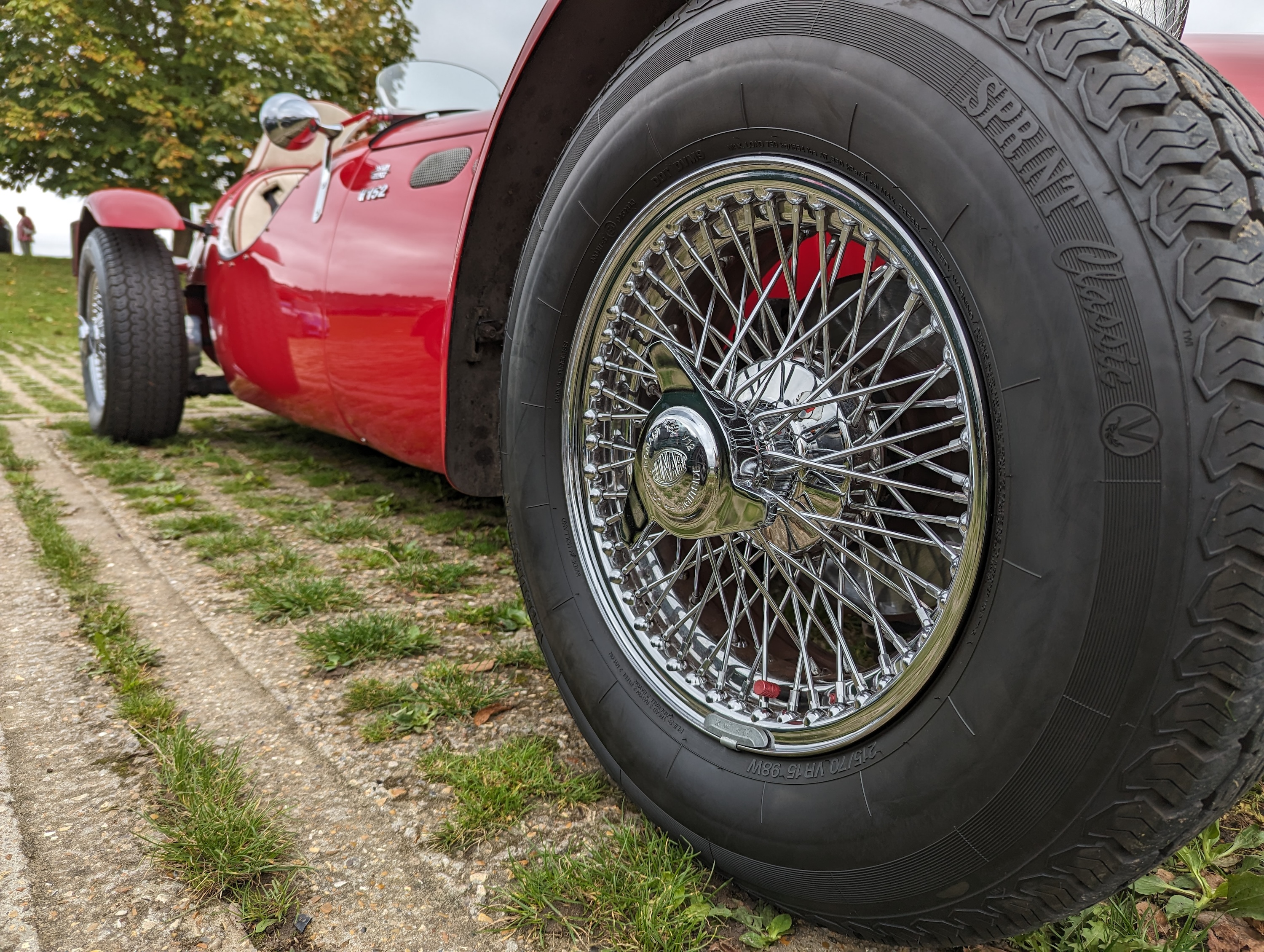
For the last week, I’ve been using the Google Pixel 7 Pro again, and for the most part, it was the speedy, attractive, capable, enjoyable, and familiar device I remember.
But over the weekend, I began to think a lot about its reliability, both positively and negatively, and how this is the one word we should all be thinking about when the Pixel 8 series arrives in the very near future.
The Pixel 7 Pro’s good reliability

When I want to take great photos, the Pixel 7 Pro is exactly the kind of phone I want to have with me. I’m only too familiar with the sinking feeling I get inside when I am aware a phone camera’s ability and the quality of its shots can’t match my creative expectations. Doubt creeps into my mind when I tap the shutter button on phones like this, as I fear what I see with my eyes and imagine in my mind won’t — or simply cannot — be replicated by the photo. The Pixel 7 Pro is not this phone at all.
This weekend, I visited a cars and coffee event, and I didn’t expect to take many photos at all as it had been poorly attended the last time I went,. But I was pleasantly surprised to see a great lineup upon arrival. I was, therefore, also pleased the Pixel 7 Pro was in my pocket at this time, as I knew the camera wouldn’t disappoint — and I could show off why I feel this way about it. A few weeks earlier, I would have come armed with the Xiaomi 13T Pro, and its unreliable camera definitely would have given me that sinking feeling.
It wasn’t the first time I have appreciated the dependable camera since picking the Pixel 7 Pro back up either, as I’d been out on an evening walk as the sun was setting and knew the Pixel 7 Pro would be perfect to capture the atmosphere. Sure enough, the photos taken on that evening, along with those of the cars at the subsequent event, came out exactly as I hoped.
I could spend some time editing and fine-tuning the photos, but I didn’t really have to do it. The Pixel 7 Pro’s photos are sharp, detailed, colorful, and wonderfully balanced without my interference. It’s the best kind of reliability.
The Pixel 7 Pro’s bad reliability

Taking photos with the Google Pixel 7 Pro is a wonderful, reliable, dependable experience from beginning to end, and during normal use, the phone has been great too — whether it’s checking emails, browsing the web, or using social networks. I really have no complaints, and because the camera satisfies me creatively, it has been a fantastic phone to use again.
Except for one thing. And now, we come to the negative side of the Pixel’s reliability. It seems to have picked up a frustrating bug that sees it get quite hot. It doesn’t happen all the time, and it has been impossible to replicate the situation, but at times it will suddenly get warmer than I expect. For example, an hour of taking photos didn’t bother it, but as soon as I shot some video (less than a minute in total), it was noticeably hot in my pocket and remained that way for much longer than I would normally expect.

Yet, in an attempt to see if I could get the phone to do it again, it happily shot several minutes of Timelapse video with hardly any increase in temperature. Plugging the phone into a charger saw it get hotter than I’d have liked, but again, it’s not every time. It’s an odd situation and one that I didn’t notice the last time I used the Pixel 7 Pro with my SIM card inside for any length of time. A quick search online reveals I’m not the only one to find the Pixel 7 Pro has mysteriously begun to have some hot flashes.
The Pixel devices I’ve used in 2023 have been exceptionally reliable, and none that I have used have been plagued by the problems seen by others on the Digital Trends team — Mobile Editor Joe Maring and Mobile Writer Mark Jansen have been particularly unlucky — making this the first time I’ve personally noticed something that shouldn’t happen. The phone hasn’t become too hot to touch or overheated, but the unpredictability of the issue means I’m a little concerned it could happen. This poor reliability is what Google needs to change.
What do I want from the Pixel 8 Pro?

The Pixel 8 and Pixel 8 Pro will be announced on October 4, and as I think about what I want to see from Google’s latest Pixel models, I’m left with that one word in my mind: reliability. I want both a continuation of Google’s positive reliability in terms of its brilliant cameras, and an improvement in its reliability when it comes to consistently producing reliable phones and software.
There shouldn’t be such variation in device reliability from any modern smartphone, especially when it’s made by a company with Google’s resources and talent. Yet, that’s what we’ve seen from the Pixel 7 series since its launch. The sudden tendency of my phone to get hotter than I’d prefer shows it can happen at any time and to devices that were previously no problem at all. Perhaps I’m paying more attention to the Pixel 7 Pro and I’m hyper-aware of any possible issues, which may be why I’ve noticed the temperature increases. But if so, it’s only because I don’t fully trust it not to have issues.
This is not a good reputation to have, and a lack of trust will undoubtedly affect sales. This is a shame when the camera (and, for me, most of the time, the software too) is reliable in the best way possible. The word reliability should have been at the top of Google’s whiteboard when developing the Pixel 8 and underlined several times. It needs to continue making a dependable, outstanding camera, but this time it also has to put it inside an equally consistent, reliable phone that everyone can recommend without any caveats — or fear of what may happen in the future.












